Mississippi Cannabis News
Why The Government Is Waging War Against Marijuana’s Legal Cousin
Published
5 months agoon

California has banned intoxicating hemp products. The DEA is conducting raids in North Carolina. And the $28 billion hemp industry is at stake.
By Will Yakowicz, Forbes Staff
IN the early morning hours of late September, some 30 Drug Enforcement Administration agents in tactical gear, with high-powered rifles drawn, raided a warehouse near Raleigh, North Carolina. The officers seized intoxicating hemp-derived THC vapes and joints, along with cash, computers and cars.
The agents, who were armed with a federal search warrant, froze the company’s $1.5 million bank account, and seized half a million dollars’ worth of product.
“They came in full force,” says Jay, the founder of the Wake County-based hemp product manufacturer and distributor who did not want to use his full name due to fear of legal repercussions. (Jay has not been arrested nor charged with a crime.)
Jay’s company, which he founded in 2019, generates about $60 million in annual revenue by selling hemp-derived products with enough delta-9-tetrahydrocanninol, or THC, the main psychoactive compound in cannabis, to get people stoned. But he says his products are federally legal under the 2018 Farm Bill, which allows the production of hemp and all its derivatives so long as it contains 0.3% of THC or less. Jay says his products are within the legal limit. “I feel like we are currently at war with law enforcement on what we believe is legal,” Jay says.
Over the last several months, joint state and federal task forces have raided more than 100 vape and smoke shops, hemp product manufacturers and distributors in North Carolina, alleging that they are selling marijuana disguised as hemp. (Both hemp and marijuana are varietals of the same plant—cannabis sativa L—but marijuana is illegal in North Carolina.) Jay says he only makes Farm Bill-compliant products but some retailers, law enforcement alleges, have sold illegal cannabis products to children and others have sold marijuana in counterfeit packaging made to look like Oreos, Chips Ahoy! and Doritos. Law enforcement, according to three sources with knowledge, apparently have a list of companies and products that have tested “hot,” meaning the THC levels are over the legal hemp limit, crossing over into marijuana.
“Not only do these products contain unlawful levels of THC, but also other harmful chemicals resulting in some individuals experiencing long-term health issues,” Kemberle Braden, chief of police in Fayetteville, said in a statement regarding the string of raids.
Raleigh-based attorney Morgan Davis, who represents more than 10 hemp business owners who have been raided, says some of her clients have been charged with felonies related to trafficking, possession with intent to sell and the manufacture of marijuana. If convicted, her clients could face considerable prison time.
“The line between criminal and civil liability in this industry is razor thin,” says Morgan. “It’s just a ridiculous overreaction to a regulatory compliance issue. It’s not a crime. It’s like using napalm to get rid of the weeds in your backyard.”
The stakes are high. Overall, hemp-derived cannabinoid product sales hit $28 billion in 2022 while legal marijuana products generated $26 billion in sales during that same period, according to cannabis data firm Whitney Economics. Only 10% of the market is cannabidiol (CBD) products, which do not get people high and are associated with therapeutic effects. (Hemp is also used to make clothing, construction materials, plastics and other products, which is a much smaller segment in the U.S., with about $5.5 billion in sales this year, according to Grand View Research. That number could reach $17 billion by 2030.)
California’s hemp market, meanwhile, generated $3.5 billion in sales last year, while North Carolina’s hemp market generated $760 million in sales. Hemp farmers, Whitney Economics estimates, have lost about $3.1 billion in annual sales due to the state bans and legal confusion that has followed.
Despite what the Farm Bill states, there is plenty of debate about whether hemp-derived THC products are legal under federal law. That’s because several things are true at once: hemp-derived cannabinoids—including delta-9 THC, delta-8 THC (a less potent compound that is affectionately called “weed lite” or “decaf kush”)—are legal under the Farm Bill if those compounds are found naturally in the plant. In an opinion from the 9th Circuit Court of Appeals in 2022, judges ruled that cannabinoids derived from hemp are legal, even if the substances have psychoactive properties.
Yet most intoxicating hemp products on the market are made by converting hemp-derived CBD isolate into delta-9 THC or delta-8 THC using a chemical process. The DEA’s section chief of Drug and Chemical Evaluation has said that synthetically derived THC—made through “a chemical reaction starting from CBD”—is a controlled substance and therefore illegal. However, the DEA’s definition of “synthetic” has been inconsistent—the agency has also said that a cannabinoid is illegal if “synthesized from non-cannabis materials” but hemp derived CBD is from cannabis. The Food and Drug Administration has been granted authority over hemp, but to make matters even more byzantine, the FDA says it needs an act of Congress to fully regulate the products.
Not everyone in hemp thinks enforcement is a bad idea. Justin Journay, the founder and CEO of 3Chi, one of the nation’s largest hemp-derived product manufacturers says years of no enforcement have created bad actors who are selling marijuana pretending to be hemp. The fact is that the hemp market is littered with bad products with dangerously high THC levels and operators who sell to children.
“It’s a good thing, ultimately, that the industry is getting cleaned up and people are going to have to play by the rules,” says Journay. “You want to make sure products are safe and you need enforcement to make sure that’s happening.”
And North Carolina’s crusade against hemp is not the only front in this war on drugs. Late last month, California Governor Gavin Newsom delivered an even bigger blow to the hemp industry: he banned hemp-derived THC through an emergency order. Governor Newsom said that the move was to prevent underage sale of intoxicating hemp products to children. Under the new regulations, hemp products may not have any detectable level of THC. California also views hemp products as a threat to its struggling legal $5 billion marijuana market. Since hemp is federally legal and marijuana is not, businesses have been selling THC-infused products online and in health food and convenience stores, smoke shops and gas stations while marijuana products must be sold through dispensaries. About 20 other states have previously instituted bans against intoxicating hemp products.
This summer, Missouri tried to ban hemp products and regulators raided a VFW post on September 11 over hemp-derived THC beverages before walking back the ban. In Texas, law enforcement conducted search and seizures on nearly a dozen hemp shops alleging products were over the legal limit of THC levels while authorities have conducted similar raids in Mississippi.
Justin Swanson, a hemp lawyer and lobbyist who is the chair of Bose McKinney & Evans’ cannabis group, sees the ban in California, the crackdown in North Carolina and other states as nothing other than an attempt to stub out the hemp industry. “These are pretty coordinated actions, state by state,” Swanson says. “The end goal is to eliminate the hemp market.”
In late March, the attorney generals of 21 states sent a letter to members of Congress asking them to remove the protections of hemp-derived cannabinoids from the Farm Bill the next time it is reauthorized. The attorneys general argue that the Farm Bill is a “reckless policy” that unleashed a “flood of products that are nothing less than a more potent form of cannabis.” And in May, an amendment made it into the next Farm Bill which would prohibit the production, sale, and distribution of synthetic intoxicating hemp derivatives and products. It is far from over as Congress is still debating the proposed language, with supporters on each side of the issue.
But it’s not all bad news for the hemp industry: Senator Ron Wyden (D-OR) introduced a bill that would support and regulate the intoxicating hemp market and Senator Rand Paul (R-KY) introduced a bill that would increase the federal THC limit in hemp to 1%.
“I feel incredibly optimistic—it feels like we’ve turned a new page into the entire discussion of hemp and cannabis legalization and regulation at a federal level,” says Jim Higdon, a cofounder of Kentucky-based Cornbread Hemp, which sells about $25 million worth of hemp-derived cannabinoid gummies a year. “But nothing happens without a crisis and without a villain.”
In Los Angeles, Nathan Cozzolino, co-founder of high-end hemp-derived THC edibles maker Rose, says California is its biggest market, representing 17% of the company’s modest annual revenue, which Forbes estimates to be around $10 million. “It’s torture,” says Cozzolino, “business torture.”
Rose, founded in 2018 in San Francisco, makes Turkish Delight-style squares packed with sophisticated flavors, including nashi pear and clarified kimchi, with low doses of THC and other cannabinoids. The company originally started as a marijuana edibles company, but Cozzolino’s products didn’t sell well in dispensaries—Rose specializes in low-dose edibles for $45, which are much more expensive and less potent than the most successful marijuana gummies on the market—and the company was going to shut down in 2023. But then Rose pivoted to hemp-derived THC and started selling directly to consumers online across the country.
“We lost our asses in the dispensary model forever, but hemp saved us,” Cozzolino says, “we finally have a sustainable, small business.” But now, with Rose losing its largest market, he hopes the company can weather the storm. “We will live with it and survive,” Cozzolino says. “I hope to preserve my company and the 30 jobs we have created.”
MORE FROM FORBES
ForbesThe Cannabis Civil War: Hemp vs. MarijuanaBy ForbesInside The Battle Over Cannabis Legalization In FloridaBy ForbesMeet The Kings Of The Pre-Roll JointBy ForbesHow Zyn Conquered AmericaBy

Author: mscannabiz.com
MScannaBIZ for all you Mississippi Cannabis News and Information.
You may like
-
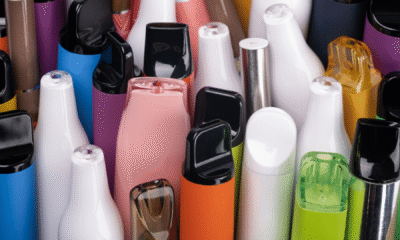

Dozen arrested after south Mississippi bust for illegal sales to underage customers
-
US marijuana laws explained as Donald Trump reveals plans for change
-
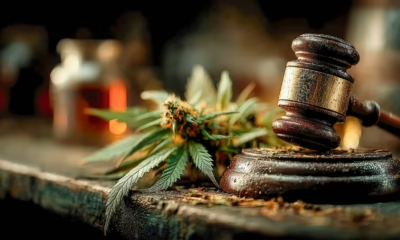

D.C. board rejects ANC 5A challenge to new medical cannabis retailer
-


AG opinion on hemp triggers legal chaos for sellers, consumers
-
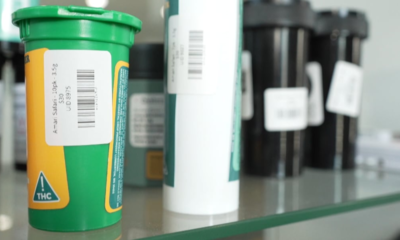

Mississippi Medical Marijuana Association pushing for policy changes
-
Mississippi Cannabis Program Adding 50 Patient IDs Per Day – Ganjapreneur
Mississippi Cannabis News
Dozen arrested after south Mississippi bust for illegal sales to underage customers
Published
14 hours agoon
September 14, 2025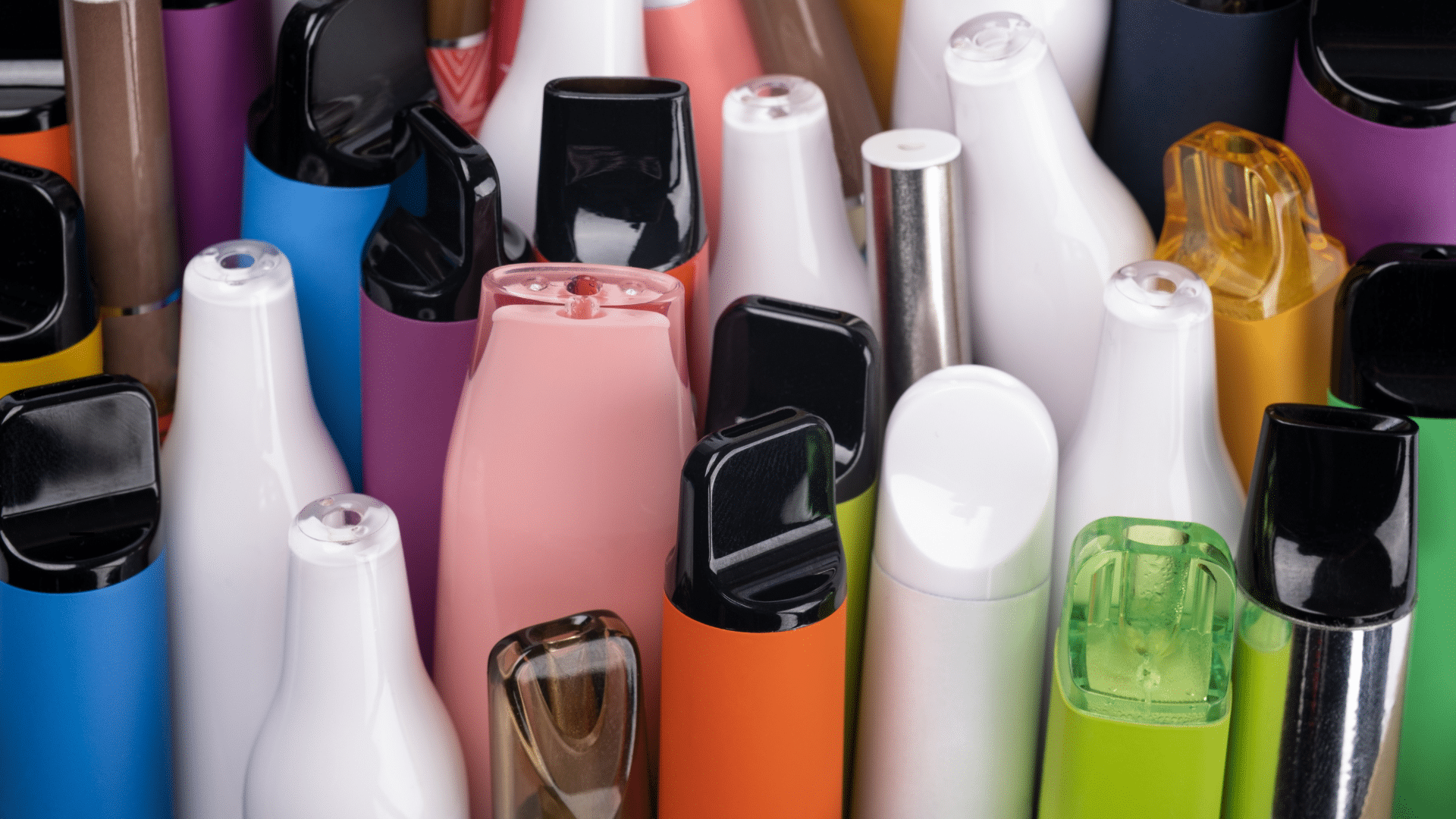
An investigation into south Mississippi businesses selling “alcohol, dangerous illegal vapes, THC edibles,” and other age-restricted or illegal items to underage customers has resulted in at least a dozen arrests with more possible, according to law enforcement.
An announcement by the Perry County Sheriff’s Office said deputies began an investigation in early 2024 after fielding complaints that some businesses in the county were purposely allowing individuals under the age of 21 to purchase age-restricted products.
Sheriff Jacob Garner said as the investigation unfolded, it quickly became clear that the issue was not restricted to Perry County. Law enforcement in nearby Forrest, Lamar, Marion, Greene, Jefferson Davis, and Jones counties had received similar complaints about businesses in their jurisdictions.
Local agencies teamed up with the U.S. Drug Enforcement Agency for over a year’s worth of identifying subjects, initiating traffic stops, and fielding more calls for service. It culminated on Sept. 11 after 20 search warrants were carried out, with 12 individuals being arrested for their involvement in the businesses selling alcohol, tobacco, and THC to minors.
RELATED: Parents urged to talk with students about tobacco risks
“Anyone who chooses to open a business in Perry County for the purpose of selling illegal narcotics, vapes, or THC products to children or adults will be arrested and prosecuted,” Garner said. “These items – disguised as safe or legal – are destroying lives and endangering the health and safety of our citizens. Business owners profiting off the harm of our children and adults in our county will be prosecuted to the fullest extent of the law.”
Garner added that many of the defendants, while operating in different counties, were working in tandem. The Mississippi Bureau of Narcotics, the Mississippi Bureau of Investigation, and the Mississippi Highway Patrol aided in the investigation that remains active.
The following list of arrests and charges has been announced by the involved law enforcement agencies:
- Khaled Alhamidi, 55, of Petal: Two counts of aggravated trafficking of a controlled substance, trafficking while in possession of a firearm, and conspiracy to sell a controlled substance.
- Akram Alhamidi, 25, of Petal: Two counts of aggravated trafficking of a controlled substance, trafficking while in possession of a firearm, and conspiracy to sell a controlled substance.
- Omar Obaid, 40, of Hattiesburg: Two counts of aggravated trafficking of a controlled substance.
- Gaizan Abubaker, 37, of Houma, La.: Two counts of aggravated trafficking of a controlled substance.
- Rami Selah, 32, of Petal: Two counts of aggravated trafficking of a controlled substance, trafficking of a controlled substance while in possession of an enhanced firearm.
- Bassel Saleh, 53, of Petal: Two counts of aggravated trafficking of a controlled substance.
- Mark Shaibi, 24, of Petal: Two counts of aggravated trafficking of a controlled substance, trafficking of a controlled substance while in possession of a firearm.
- Gabr Al-Gabri, 36, of Petal: Two counts of aggravated trafficking of a controlled substance, trafficking of a controlled substance while in possession of an enhanced firearm.
- Basel Rashad, 30, of Petal: Two counts of aggravated trafficking of a controlled substance, trafficking while in possession of a firearm.
- Anmed Elgabry, 30, of Petal: Two counts of aggravated trafficking of a controlled substance, trafficking of a controlled substance while in possession of an enhanced firearm.
- Mohammed Riyadh, 31, of Hattiesburg: Two counts of aggravated trafficking of a controlled substance.
- Ahmedou Mohamedlaamar, 22, of Perry County: Aggravated trafficking of a controlled substance.

Author: mscannabiz.com
MScannaBIZ for all you Mississippi Cannabis News and Information.
Mississippi Cannabis News
US marijuana laws explained as Donald Trump reveals plans for change
Published
3 days agoon
September 12, 2025
Donald Trump is reportedly looking at reclassifying marijuana as a less dangerous drug in the US.
According to an article in the Wall Street Journal, the 79-year-old president is ‘looking at’ making a huge change, which would make it easier to buy and sell weed, making the multibillion-dollar industry more profitable.
The publication’s sources claimed that during a recent fundraiser held at his New Jersey golf club, where tickets for the event went for a whopping $1 million each, the Republican leader first spoke of the potential plans.
He allegedly said he was ‘looking at’ possibly changing the classification of marijuana from a Schedule I controlled substance to a Schedule III substance.
In simple terms, this doesn’t mean it would make the drug completely legal across the US, but it would help ease restrictions on it.

Donald Trump is reportedly considering whether to reclassify marijuana in the US (Bloomberg/Getty Images)
At the event, speaking of tweaking the federal restrictions for the drug, Trump allegedly said: “We need to look at that. That’s something we’re going to look at.”
Then, according to The Telegraph, speaking at a press conference on Monday, the US president affirmed: “We’re looking at reclassification, and we’ll make a determination over, I’d say, the next few weeks.”
He reportedly added that the decision is ‘very complicated’ – so, let’s break it down.
How do US marijuana laws work?
At a federal level, marijuana remains illegal in the US as per the 1970 Controlled Substances Act, however, many states have made their own rules for cannabis use.
As we mentioned earlier, it’s federally classified as a Schedule I drug – this means that federal law considers it to have a ‘high potential for abuse’ and ‘no currently accepted medical use in treatment in the United States’.
But, despite its federal classification, 24 states plus the District of Columbia have fully legalised weed, meanwhile others have opted to only allow it for medicinal purposes.
Cannabis legalisation in individual states can be done in a number of ways, ranging from fully illegal to legal for both medicinal and recreational use.
If you’re in a state that has completely legalised recreational marijuana and you’re 21 or older, you have the right to use cannabis products for your own personal enjoyment.
However, this doesn’t always mean it’s legal to purchase – confusing, I know.
For example, while it’s illegal to buy marijuana in Washington, DC, it’s legal for anyone 21 and older to possess up to two ounces of it and grow up to six marijuana plants in the district.
So essentially, it’s all down to the state you’re in and their specific regulations.
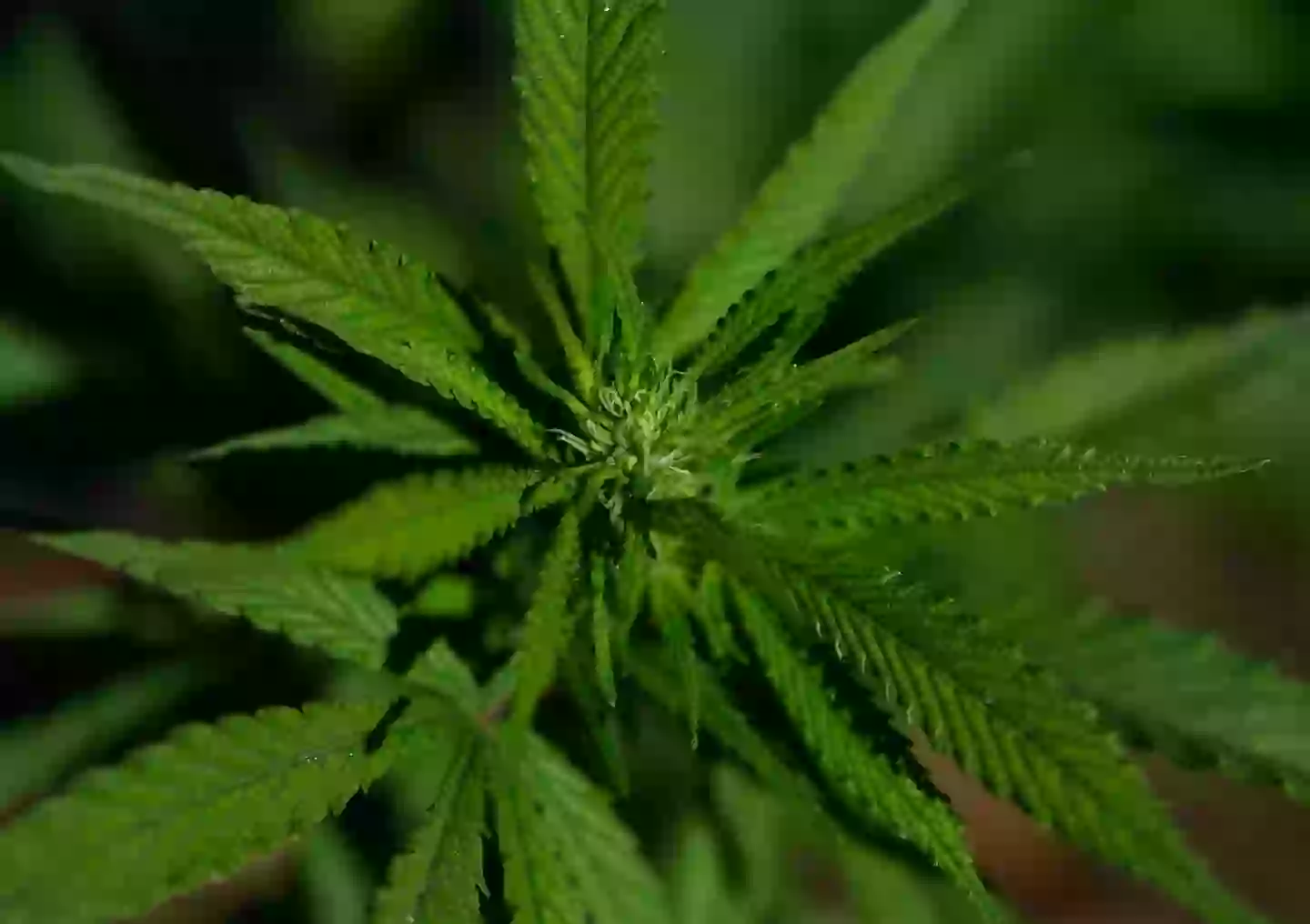
America’s cannabis laws can be a tricky subject to wrap your head around (Justin Sullivan/Getty Images)
What would happen if marijuana became a Schedule III drug?
If Trump were to go ahead and reclassify marijuana as a Schedule III drug, this would be a pretty big change up and down America.
According to the US government’s website, Schedule III drugs are defined as drugs ‘with a moderate to low potential for physical and psychological dependence’ and their ‘abuse potential is less than Schedule I and Schedule II drugs’.
Some examples of Schedule III drugs are products containing less than 90 milligrams of codeine per dosage unit, such as Tylenol with codeine, ketamine, anabolic steroids, and testosterone.
Meanwhile, Schedule I drugs are defined as drugs with no currently accepted medical use and a high potential for abuse.
Some examples include heroin, LSD, ecstasy, and as of right now, marijuana.
It’s important to note that the switch up would not make marijuana completely legal – it would just help ease restrictions and create more opportunities for medical uses and possible tax breaks for marijuana companies.
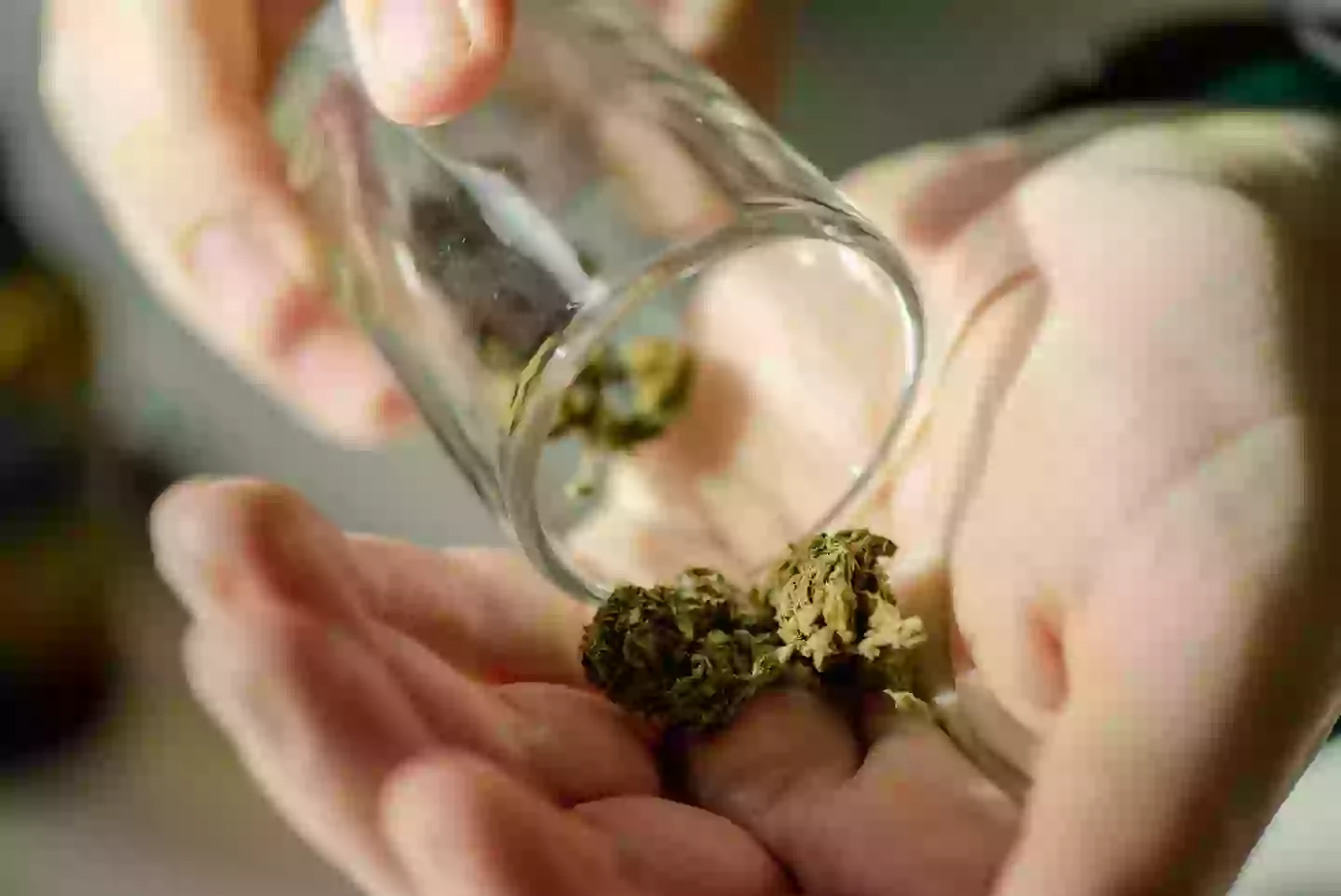
The Republican leader is said to be ‘looking at’ possibly switching marijuana from a Schedule I drug to a Schedule III drug (Emilija Manevska/Getty Images)
Which US states is marijuana currently legal in?
States where marijuana is fully legal:
- Alaska
- Arizona
- California
- Colorado
- Connecticut
- Delaware
- District of Columbia
- Illinois
- Maine
- Maryland
- Massachusetts
- Michigan
- Minnesota
- Missouri
- Montana
- Nevada
- New Jersey
- New Mexico
- New York
- Ohio
- Oregon
- Rhode Island
- Vermont
- Virginia
- Washington
States where marijuana is legal for medical purposes only:
- Alabama
- Arkansas
- Florida
- Georgia (CBD oil only)
- Hawaii
- Indiana (CBD oil only)
- Iowa (CBD oil only)
- Kentucky
- Louisiana
- Mississippi
- New Hampshire
- North Dakota
- Oklahoma
- Pennsylvania
- South Dakota
- Tennessee (CBD oil only)
- Texas
- Utah
- West Virginia
- Wisconsin (CBD oil only)
- Wyoming (CBD oil only)

Author: mscannabiz.com
MScannaBIZ for all you Mississippi Cannabis News and Information.
Mississippi Cannabis News
D.C. board rejects ANC 5A challenge to new medical cannabis retailer
Published
3 days agoon
September 12, 2025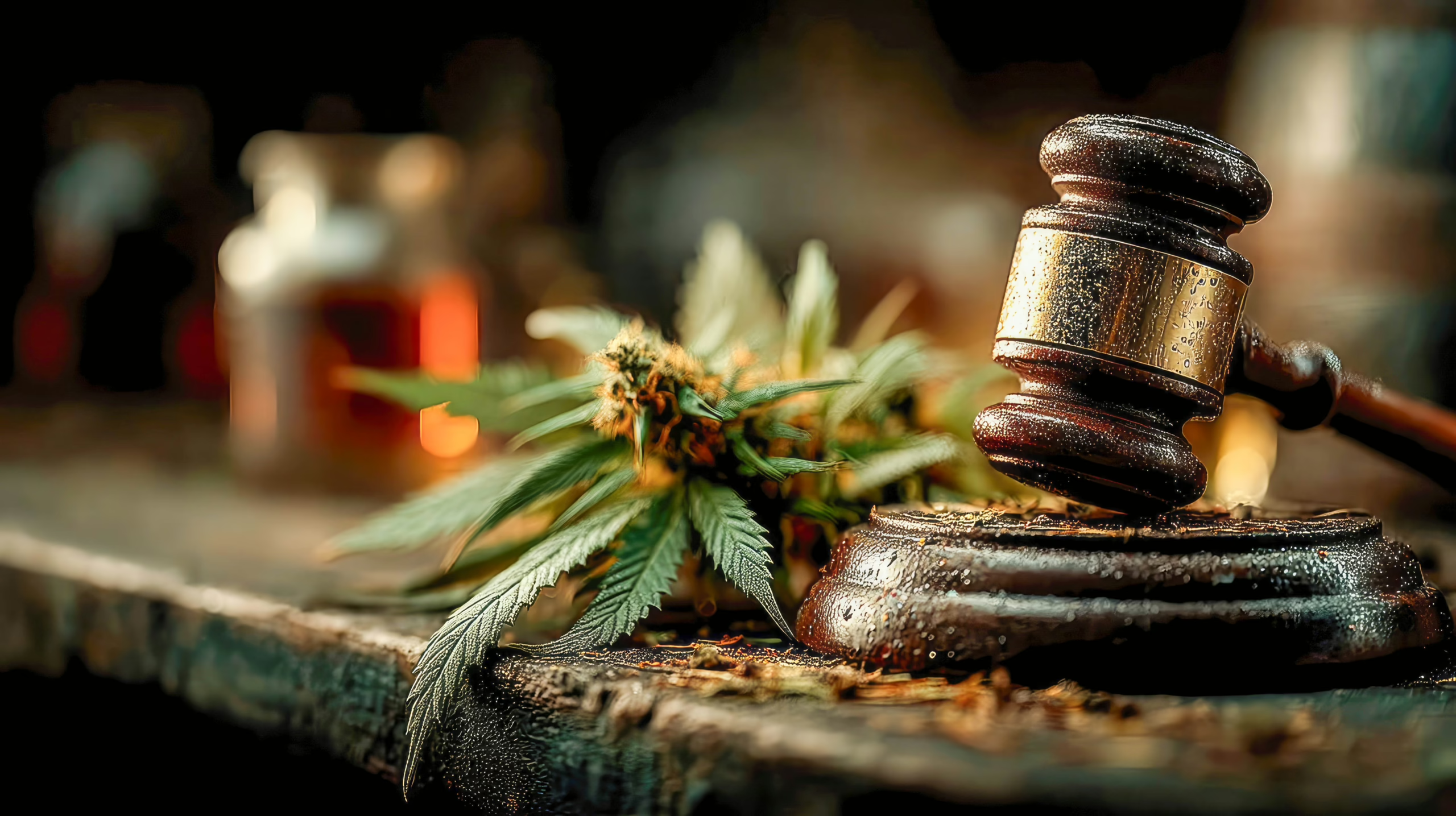
D.C. board rejects ANC 5A challenge to new medical cannabis retailer in Ward 5
The D.C. Alcoholic Beverage and Cannabis Board has rejected ANC 5A’s bid to reinstate its protest against a new Clinical Solutions medical cannabis dispensary in Ward 5, ruling that the ANC’s objections about daycare proximity and safety lacked the specific statutory grounds required to proceed; the license application remains on track, though the decision can still be appealed.
- Alt Sol was featured by wtop News.
- Catch up on today’s ABC Board meeting: watch, agenda.
- Sept. 24, Black Cannabis Week’s D.C. event, “From Prohibition to Policy.”
- A GOP-led House committee is advancing a bill to repeal Washington, D.C.’s Second Chance Amendment Act—which automatically expunges past cannabis possession records—framing the move as part of a broader “restoring law and order” initiative.
Workers protest at Maryland dispensary grand reopening over labor disputes
Cannabis workers and community members protested outside The Apothecarium’s grand reopening in Cumberland, Md., on Sept. 5, alleging the company engaged in union-busting and stalled contract negotiations since employees voted to unionize last year. UFCW Local 27 says workers are demanding fair pay and just cause protections, while the company has not yet issued a response.
Virginia’s 2025 gubernatorial race may decide future of legal cannabis market
Over half of Virginians have used cannabis, but the state currently lacks a legal retail market, though a bipartisan commission is studying its potential and the issue is expected to hinge on the 2025 gubernatorial election. Democratic candidate Abigail Spanberger supports establishing a regulated retail market to boost revenue and public safety, while Republican nominee Winsome Earle-Sears opposes legalization, citing cannabis as a gateway drug.
ICYMI: D.C. Dispensaries Boom, Trulieve Expands, Virginia Cannabis Hits a Turning Point
East Coast Roundup
Once a dominant force in Massachusetts‘ cannabis industry, Fitchburg-based Rev Clinics supplied products to approximately 75% of the state’s dispensaries. However, the company has faced significant challenges leading to its collapse.
A CBD shop in Connecticut shut down following allegations of illegal cannabis sales. The owner has agreed to a settlement.
New York’s licensed cannabis sales surpassed $2.09 billion, with over $1 billion generated in 2025 alone, indicating a robust and expanding market despite market turmoil.
The New York State Office of Cannabis Management announced the transition to the Metrc system for tracking cannabis from seed to sale will start in 2026.
Delaware’s recreational cannabis market achieved $7.3 million in sales during its inaugural month, signaling a strong consumer demand.
The Massachusetts Attorney General certified 44 ballot proposals for the 2026 election, including one aiming to repeal the state’s 2016 law legalizing recreational marijuana sales. This proposal, led by Sudbury resident Caroline Alcock Cunningham, seeks to shut down recreational dispensaries and impose civil penalties for public possession exceeding one ounce.
Culture & More
A new report highlights a significant rise in cannabis use among Americans aged 65 and older, with a 46% increase between 2021 and 2023.
USF Credit Union has introduced ‘Verde,’ a cannabis banking program aimed at providing financial services to the legal cannabis industry in Florida.
A new study found that THC can reach the human egg and may affect female fertility. Women who had THC in their follicular fluid showed a small increase in egg maturity but a lower rate of healthy embryos.
Around the Country
Mississippi’s medical cannabis program is expanding rapidly, with an average of 50 new patient cards issued daily. As of August 2025, the state has approximately 50,000 active cards, up from 40,000 in June 2024.
Texas retailers are relieved after the state legislature failed to pass a ban on THC products during the second special session. Despite this, Lt. Gov. Dan Patrick remains committed to a total ban, citing concerns over youth access.
California’s use of drones to monitor illegal cannabis cultivation led to unintended consequences, including the targeting of residents without cannabis operations. In Sonoma County, drone surveillance resulted in fines, evictions and legal battles for individuals who had no cannabis involvement.
From the swamp
Former Trump advisor Kellyanne Conway is reportedly a strong proponent of rescheduling cannabis, according to a GOP congressman. Her support adds a notable voice to the ongoing debate over federal cannabis policy reform.
OPINION: A Washington Post opinion piece argued that a loophole in the 2018 Farm Bill allows children access to psychoactive hemp-derived substances like delta-8 and delta-10 THC.
Employment Opportunity: DC Licensed Internet Retailer Dispensary Now Hiring. Contact info@getlocald.com to Learn More.

Author: mscannabiz.com
MScannaBIZ for all you Mississippi Cannabis News and Information.

Meet the World’s First Cannabis Rugby Team: Crewmen 7’s Tackle Stigma Head-On

Texas Supreme Court Refuses To Take Up Marijuana Case Challenging State’s Rejection Of Local Decriminalization Law

California Passes Bill to Ban Intoxicating Hemp Products Outside Cannabis Market

Pending Federal Hemp Legislation Could Reshape The Legal Industry By Banning Some Products (Op-Ed)

Verano Proposes to Redomicile Parent Company From British Columbia to Nevada

8,000 cannabis plants seized from illegal Bradford grow-op

New York Lawmakers Schedule Psychedelics-Focused Hearing To Discuss ‘Medicinal Value And Risks’ Of Psilocybin

Curaleaf Opens Cannabis Dispensaries in Florida, Ohio

How to Protect Your Outdoor Cannabis Crops From Pests

Feds provide anti-cannabis group a platform to bash legalization (Newsletter: September 15, 2025)

Dozen arrested after south Mississippi bust for illegal sales to underage customers

The Toking Traveler: Why Amsterdam Weed Is Mostly Boof

Arkansas Medical Marijuana Sales Are On Track To Set A New Annual Record

When Cannabis Brands Blur Into Youth Culture, Regulators Notice: Lessons From Tobacco’s Past

Rhode Island Marijuana Dispensary License Application Process Officially Launches

Middle school student found with cannabis in bookbag, Charles County deputies say

Smugglers who brought drugs on an industrial scale into Wales jailed

Attorney pulls out bag of cannabis in NC Supreme Court hearing

WHO AM I? Man wanted for New Bern cannabis store theft

Cannabis packages under scrutiny

California authorities shut down nearly $30 million worth of illegal cannabis operations

A Green Light for Cannabis? Europe Waits While the U.S. Untangles the Red Tape

Move Over, Booze: Weed Drinks Pulled $1.1 Billion in U.S. Sales in 2024

Congressional Committee Votes To Repeal Marijuana Expungements Law In Washington, D.C.

Alert: Department of Cannabis Control updates data dashboards with full data for 2023

Connecticut Appoints The US’s First Cannabis Ombudsperson – Yes there is a pun in there and I’m Sure Erin Kirk Is Going To Hear It More Than Once!

5 best CBD creams of 2024 by Leafly

EU initiative begins bid to open access to psychedelic therapies
New Study Analyzes the Effects of THCV, CBD on Weight Loss

Free delta-9 gummies from Bay Smokes

5 best autoflower seed banks of 2024 by Leafly

Discover New York’s dankest cannabis brands [September 2024]

Press Release: CANNRA Calls for Farm Bill to Clarify Existing State Authority to Regulate Hemp Products

Curaleaf Start Process Of Getting Their Claws Into The UK’s National Health System – With Former MP (Resigned Today 30/5/24) As The Front Man

May 2024 Leafly HighLight: Pink Runtz strain

Local medical cannabis dispensary reacts to MSDH pulling Rapid Analytics License – WLBT

Recreational cannabis on ballot for third time in South Dakota

5 best THC drinks of 2024 by Leafly

Horn Lake denies cannabis dispensary request to allow sale of drug paraphernalia and Sunday sales | News

Mississippi city official pleads guilty to selling fake CBD products

6 best CBD gummies of 2024 by Leafly

Nevada CCB to Accept Applications for Cannabis Establishments in White Pine County – “Only one cultivation and one production license will be awarded in White Pine County”

The Daily Hit: October 2, 2024

5 best delta-9 THC gummies of 2024 by Leafly

Weekly Update: Monday, May 13, 2024 including, New Guide for Renewals & May Board meeting application deadline

PRESS RELEASE : Justice Department Submits Proposed Regulation to Reschedule Marijuana

5 best THCA flower of 2024 by Leafly

People In This State Googled ‘Medical Marijuana’ The Most, Study Shows
Trending
-

 California Cannabis Updates1 year ago
California Cannabis Updates1 year agoAlert: Department of Cannabis Control updates data dashboards with full data for 2023
-

 Breaking News1 year ago
Breaking News1 year agoConnecticut Appoints The US’s First Cannabis Ombudsperson – Yes there is a pun in there and I’m Sure Erin Kirk Is Going To Hear It More Than Once!
-

 best list1 year ago
best list1 year ago5 best CBD creams of 2024 by Leafly
-

 Business12 months ago
Business12 months agoEU initiative begins bid to open access to psychedelic therapies
-

 cbd1 year ago
cbd1 year agoNew Study Analyzes the Effects of THCV, CBD on Weight Loss
-

 Bay Smokes1 year ago
Bay Smokes1 year agoFree delta-9 gummies from Bay Smokes
-

 autoflower seeds12 months ago
autoflower seeds12 months ago5 best autoflower seed banks of 2024 by Leafly
-

 cannabis brands12 months ago
cannabis brands12 months agoDiscover New York’s dankest cannabis brands [September 2024]

